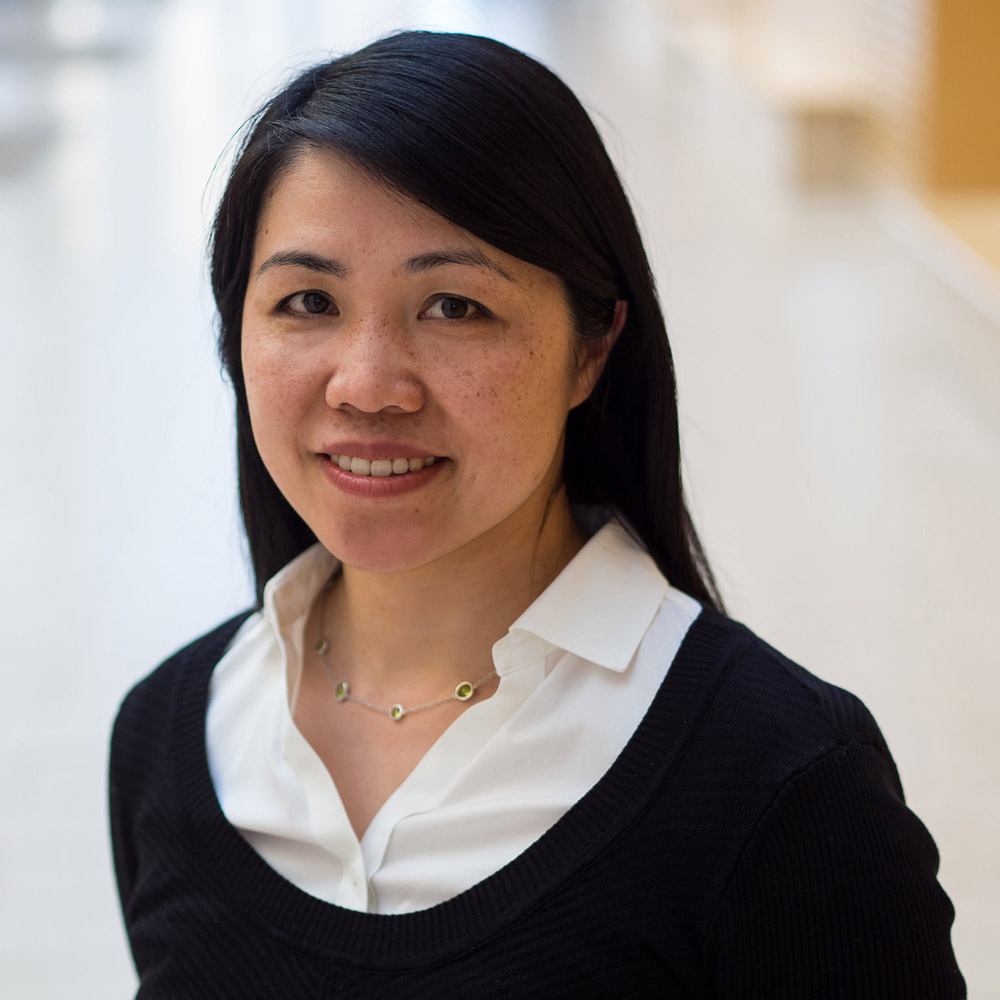

 Karen C. Cheung
Karen C. Cheung Abstract:
The oxygen microenvironment is a key factor affecting tumour cell phenotype, cancer prognosis and treatment efficacy, as well as stem cell proliferation and cell-fate commitment. We use microfluidic methods to generate three-dimensional tumour models that use extracellular matrix components to support cell proliferation. We have developed a microfluidic platform that affords the creation of oxygen profiles that vary in time and space, precise control of the oxygen levels, and stability over time for long-term cell culture, permitting drug screening assays can last several days. Using two-photon microscopy, we track, in real-time, individual cells within 3D tumour spheroids exhibiting cyclic swelling behaviour in response to time-varying oxygen profiles, and observe doxorubicin resistance in hypoxic spheroids. In future, the cell-by-cell analysis enabled by these efforts will permit the characterization of heterogeneity within arrays of micro-tissues, the identification of subpopulations of cells and individual cells, and the assessment of their responses.
Bio:
Karen C. Cheung received the B.S. and Ph.D. degrees in bioengineering from the University of California, Berkeley, CA, USA, in 1998 and 2002, respectively. From 2002 to 2005, she was a Postdoctoral Researcher with the École Polytechnique Fédérale de Lausanne, Switzerland. She is currently an Associate Editor for the journals IEEE Transactions on Biomedical Circuits and Systems and Biomedical Microdevices, and has served on the technical program committees of the IEEE International Conference on Micro Electro Mechanical Systems (IEEE MEMS, where she also serves on the International Steering Committee), the Hilton Head Workshop on the science and technology of solid-state sensors, actuators, and microsystems, and the International Conference on Miniaturized Systems for Chemistry and Life Sciences (MicroTAS). She is currently a Professor at the University of British Columbia, Vancouver, BC, Canada; Associate Director of the School of Biomedical Engineering, and Director of the Graduate Program. Her research interests include lab-on-a-chip systems for tissue engineering and high content drug screening, biosensors, inkjet printing for single cell dispensing, and implantable neural interfaces.